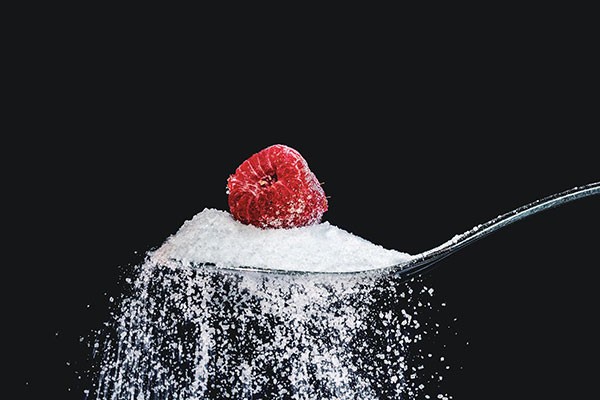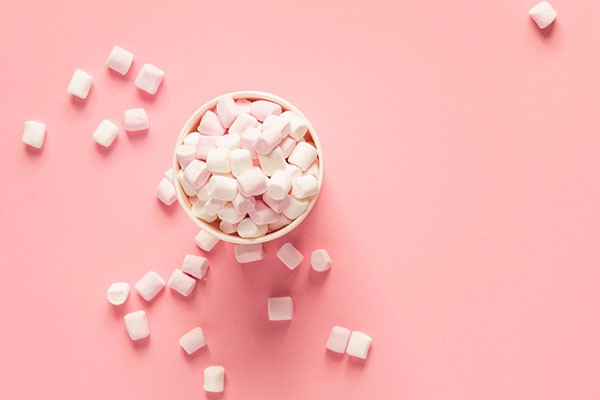Does Sugar Make Kids Hyperactive?

Hyperactive children from the “sugar rush”
A child experiencing a "sugar rush" has entered the annals of pop culture so deeply, that one fears it may never make it out!
You know the drill: your child or someone else's goes to a party and runs around with loud screams because they've had some sugar.
But is it the sugar causing this? Or is it that they're at a party, socialising, and having fun?
Well, this study, a meta-analysis, went through the findings of 23 experiments in 16 papers, including only studies where the children, parents and teachers didn't know who had been given the sugar or the placebo.
This is to avoid any obvious biases that can take place during studies like that.
So, what did they find?
“This meta-analysis of the reported studies to date found that sugar (mainly sucrose) does not affect the behaviour or cognitive performance of children.”
Oh. Not looking good for the "sugar causes hyperactivity" camp.
But many parents think they know their children on a level they possibly can't: "I've seen it!", one parent said to me after I presented these findings.
And so more research has been conducted, like this study, that investigated whether some children are sensitive to sugar as their parents insist.
The children were split into two groups:
- 25 “normal” children aged 3–5
- 23 children, aged 6–10, whose parents described them as being sensitive to sugar
Three experimental diets were followed by each family for three weeks:
- High in sucrose, with no artificial sweeteners
- Low in sucrose, but with aspartame as a sweetener
- Low in sucrose, but with the placebo saccharin as a sweetener
And if you're wondering why aspartame was used, it's because it has been “considered a possible cause of hyperactivity and other behaviour problems in children.”
All three diets were free from artificial food colourings, additives, and preservatives. Every week, the children’s behaviour and cognitive performance were assessed.
And so, what did they find?
“For the children described as sugar-sensitive, there were no significant differences among the three diets in any of 39 behavioural and cognitive variables. For the preschool children, only 4 of the 31 measures differed significantly among the three diets, and there was no consistent pattern in the differences that were observed.”
And there we go again...

Another study addressed parents that were certain their children were "sugar sensitive."
So, the scientists set up a cheeky experiment, splitting the children up into two groups:
- Group one: Received a placebo, which was aspartame.
- Group Two: Received a placebo, which was aspartame.
But here's the thing: half the mothers were told that their children had each received a placebo, and the others were told that theirs had each received a large dose of sugar.
The scientists filmed the mothers and sons as they interacted and were asked questions about the interaction. The authors explain what they saw:
“Mothers in the sugar expectancy condition rated their children as significantly more hyperactive. Behavioural observations revealed these mothers exercised more control by maintaining physical closeness, as well as showing trends to criticise, look at, and talk to their sons more than did control mothers.”
Very cheeky. But also, a great illustrator of how incorrect observations by anyone can lead to apparent facts.
Another study looked at the impact of sugar consumption on the sleep and behaviour of 287 children aged 8–12.
The researchers collected information from food frequency questionnaires and demographic, sleep, and behaviour questionnaires.
81% of the children consumed more than the recommended daily sugar intake, but still, the researchers concluded:
“Total sugar consumption was not related to behavioural or sleep problems, nor affected the relationship between these variables.”
So, if sugar is causing hyperactivity, then the effect is not large and it's not in the majority of children. It might just be that children enjoy being around other children in a social setting and run around loudly. And it just so happens, that they're consuming sugar at the same time.

The bottom line on children and sugar
Much of the research finds sugar does not cause hyperactivity in children. Whilst many parents swear their children might be in the minority and are "sugar sensitive" this does not hold up to scientific scrutiny. It seems that children are hyperactive when they are around other children and that sugar is subsequently served at the same time.
Even when two groups of children are given a placebo, parents rate their children as more hyperactive, despite only receiving aspartame. Children should continue to enjoy sugar with parents understanding that it's highly unlikely it's that which is causing them to be hyperactive.
References:
- Hoover DW, Milich R. Effects of sugar ingestion expectancies on mother-child interactions. J Abnorm Child Psychol. 1994 Aug;22(4):501-15. doi: 10.1007/BF02168088. PMID: 7963081.
- Nadia Raci Marques Pereira, Sergio Tufik, Helena Hachul. (2018) Is there a relationship between excessive sugar consumption and sleep quality in children?. International Journal of Food Sciences and Nutrition 69:8, pages 901-901.
- Wolraich ML, Lindgren SD, Stumbo PJ, Stegink LD, Appelbaum MI, Kiritsy MC. Effects of diets high in sucrose or aspartame on the behavior and cognitive performance of children. N Engl J Med. 1994 Feb 3;330(5):301-7. doi: 10.1056/NEJM199402033300501. PMID: 8277950.
- Wolraich ML, Wilson DB, White JW. The Effect of Sugar on Behavior or Cognition in Children: A Meta-analysis. JAMA. 1995;274(20):1617–1621. doi:10.1001/jama.1995.03530200053037














































